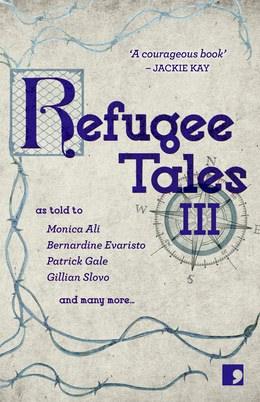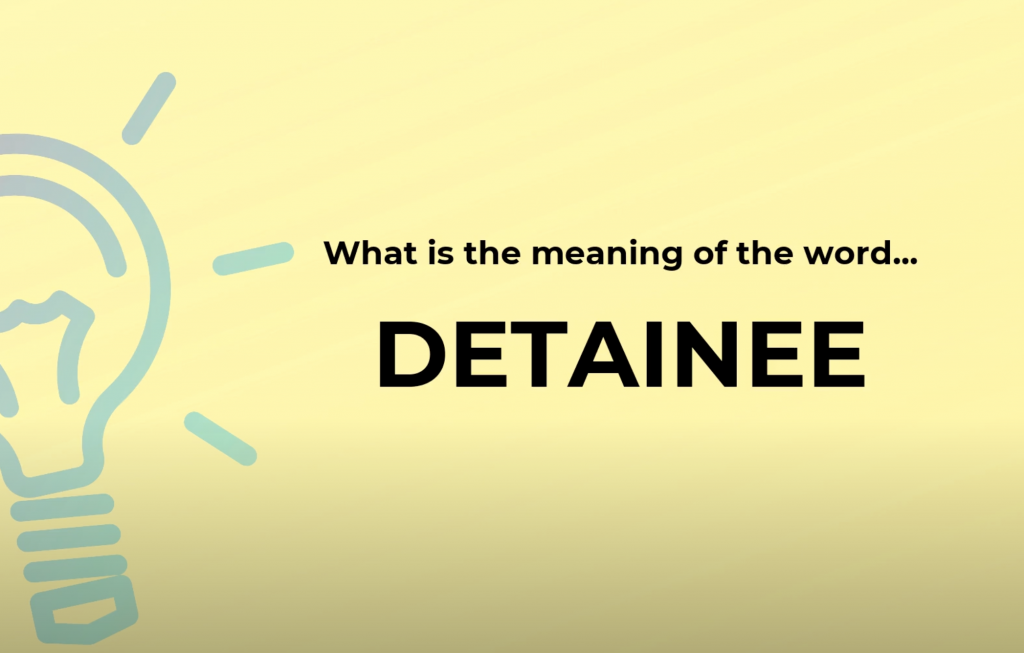TogetherintheUK is not a campaigning organisation but we do recognise the hardship of migration particularly for asylum seekers and refugees. This review shows how ‘Refugee Tales’ communicate what it is like to be in the system.

Language is at the heart of our mission at TogetherintheUK. A lot of our shared insights focus on the practical measures of everyday life as a migrant, in which language holds paramount importance as the medium of sympathy, confusion, exchange and so much more. But one form of language which has huge impact on thousands of migrants in the UK is a language which has been systematically shaped to produce specific and constrictive effects on those it addresses: this is the language used by the Home Office and courts within the asylum and immigration detention system.
In ‘The Teacher’s Tale’ of Refugee Tales III, Emma Parsons calls this ‘English as a Detention Language’, playing on the more familiar and mildly named courses like ‘English as a Foreign Language’. The tale depicts visiting sessions with her friend, held in a detention centre at the back of Gatwick airport, during which she helps him muddle through the cold formalities of English as it exists in the friend’s appeal against deportation. Parsons writes:
‘You are not yet a deportee. You are still a detainee. Anonymising appellations. Neat. One Word’.

You are not yet a deportee. You are still a detainee. Anonymising appellations. Neat. One Word’.
‘The Teacher’s Tale’, like all the tales in the collection, reveals the institutionalised effort to dehumanise the most vulnerable in our society, an effort that filters down even to the grammar and syntax through which their lives are referred to. These single words, ‘deportee’, ‘detainee’, cannot contain the multiplicity of experience they claim to describe. Rather, such ‘anonymising appellations’ exemplify how each aspect of our bordering practices works to constrain human life into a narrower, more degrading sphere of legitimacy.
Resisting the reductive, if not cruel, representations of refugees and those who have lived through immigration detention by mainstream media and the state, Refugee Tales is a series offering a more generous and hospitable space for people to tell their stories with freedom and safety. Published by Comma Press in collaboration with charities Gatwick Detainees Welfare Group and Kent Refugee Help, Refugee Tales III is the most recent iteration in a series which seeks to bring an end to indefinite detention in the UK. Indefinite detention means that migrants in the UK, unlike any other country in Europe, can be held in prison-like conditions for an unlimited amount of time – a practice which has categorically been demonstrated as ineffective, expensive (to the state) and immeasurably harmful. As David Herd, one of the editors of the book, states in the afterword, ‘to end indefinite detention would not be to end the hostile environment. It would, however, be to dismantle a fundamental aspect of its architecture.’
The arbitrariness of indefinite detention is a manifestation of the toxic insecurity the hostile environment instils in people and society. Whether that is via the intensity with which migrants are surveilled; the possibility that at any moment, someone might be arrested and taken to a detention centre; the sheer material poverty that the state’s supposed support for asylum seekers inflicts – insecurity forms the backbone of a system which is calculated to strip people of their basic rights and integrity. Many details of the UK’s asylum and detention system are shrouded with secrecy and it’s not surprising, considering what these stories lay bare of the cruelty people have and continue to experience. Refugee Tales III illustrates how violent and invasive our border practices are; how this violence continues long after and far away from the moment when people, often fleeing great adversity around the world, first enter the UK.
The continuing relevance of this was highlighted to me when I caught sight of a situation on my timeline, almost entirely swallowed up by perhaps more sensational headlines. In May 2021, the Home Office switched the provider of the ASPEN card, a pre-paid card topped up £39 each week for those seeking asylum, to the firm Prepaid Financial Services. Notwithstanding the injustice of how little people are afforded to support themselves, the process of changing provider has led to thousands of people being unable to access any of their funds. At the time of writing (10th June 2021), there are still people who have received no government financial support because of this failure. Perhaps “failure” is too generous a term – what Refugee Tales III emphasises is how prevalent and deliberate such matters of bureaucratic negligence are; how mentally and physically painful such policies are to live with as a daily reality.
It came as a surprise to me, for instance, how much of the book is dedicated to paperwork. Nearly all of the stories feature in some aspect the Home Office’s demands for often impossible to find evidence to claims made by people seeking asylum or appealing deportation, and express the anxieties that such a high burden of proof create. In ‘The Applicant’s Tale’, F reflects on the psychological stress from years of picking apart and objectifying their life experiences into paperwork:
‘I was not a whole person, more like a set of glued-together fragments; a shattered piece of glass or Chinese porcelain held together with cement. Their questions threatened to shatter me all over again. And when they asked, everything leaked out of me, leaving me exhausted’.
I think it can be tempting to be depressed by the sense that story-telling is futile, particularly as we are exposed to a constant bombardment by stories of suffering from a news cycle whose appetite for trauma can leave us desensitised from sympathy for our fellow human folk. On another level, it can also be easy to tell ourselves that story-telling is trivial, an insular form of culture isolated from social and political contexts. But reading how F, and many others in this book, recount the state’s manipulation of their lived experiences through interview practices points us to a more nuanced understanding of power as it is implicated in story-telling – of what it means to listen to a story in the context of detention. Lisa Appignanesi reflects on her position as the writer of another person’s story in ‘The Dancer’s Tale’:
‘I am about to pose another question when I realise, I am repeating the act of interrogation. I have a vision of you going through the asylum procedures, the endless questioning, the appeals and interrogations. You must experience these as repetitions of those traumatic times, this time enacted by a bureaucracy that is meant to be benign’.
Part of Refugee Tales’ objective is to realign the vectors of power present in story-telling and story-listening – an aim which is elevated by this book being the first in the series to include stories written directly by those with lived experience of immigration detention. There are moments of peace and hope in this book – individual memories of rich past lives, of hard-earned fulfilment – but they don’t allow us to forget that the existence of this series, the fact that a fourth installation is expected next month, are a testament to an international system of oppression that shows no sign of changing in the radical ways it must.
All profits from the Refugee Tales series go to the Gatwick Detainees Welfare Group and Kent Refugee Help.







